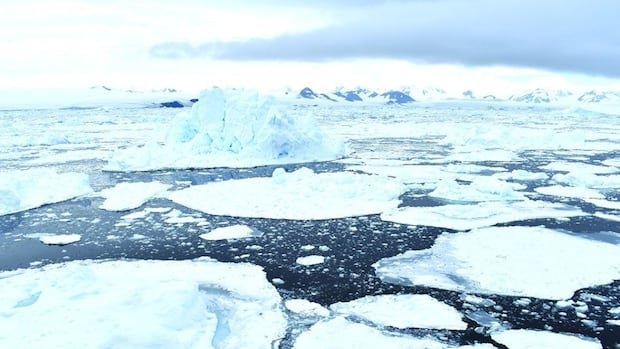In recent years, scientists have explored the concept of geoengineering to manipulate the climate, with a particular focus on the rapidly warming Arctic region. Proposed strategies include enhancing sea ice thickness, iron fertilization of the ocean, and deploying particles to reflect sunlight and mitigate warming effects. However, a new study conducted by researchers following COP28 in Dubai has concluded that these geoengineering proposals are not viable and could lead to significant environmental harm.
Published in the journal “Frontiers in Science,” the study scrutinized five prominent geoengineering concepts aimed at the polar regions and revealed their inadequacy in meeting basic feasibility standards, potentially causing severe ecological repercussions. Co-author Martin Sommerkorn from the WWF Global Arctic Program emphasized the need for long-term dedication to combat climate change, cautioning against the false hope associated with quick fixes.
Lead author Helen Amanda Fricker, a professor at UC San Diego’s Scripps Institution of Oceanography, highlighted the impracticality of certain proposed techniques due to the monumental scale of ice sheets, which surpass human comprehension. Evaluating a range of geoengineering methods, researchers meticulously examined feasibility, effectiveness, costs, governance, and potential negative impacts, emphasizing the exhaustive and systematic nature of their analysis.
While some advocate for exploring geoengineering as a supplementary solution to climate change, others like University of Manitoba’s Julienne Stroeve express concerns about potential global repercussions, emphasizing the interconnectedness of climate systems. They warn against the unintended consequences of localized geoengineering interventions, such as disrupting rainfall patterns in other regions.
Despite differing opinions, the consensus remains that prioritizing decarbonization efforts is crucial. Astrophysics professor Steve Desch from Arizona State University acknowledges the importance of exploring various options but underscores the irreplaceable role of decarbonization in mitigating climate change. He advocates for a balanced approach that considers both geoengineering possibilities and emission reduction strategies.
Reflecting on the urgency of addressing climate change, experts like Greg Henry, a geography professor emeritus at the University of British Columbia, emphasize the risks associated with large-scale geoengineering projects. Henry stresses the need for caution and a focus on decarbonization, citing uncertainties regarding the impacts on ecosystems and Indigenous communities in the Arctic.
While geoengineering presents potential solutions, the emphasis remains on the necessity of reducing carbon emissions rapidly. As the world grapples with the escalating climate crisis, the debate continues on the most effective and responsible pathways towards a sustainable future.

